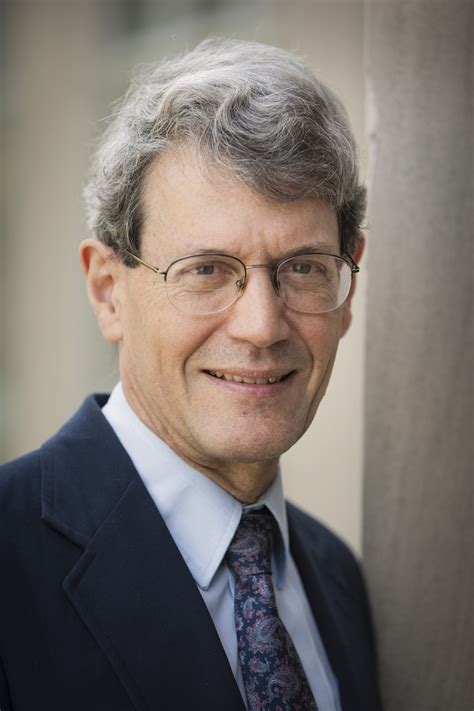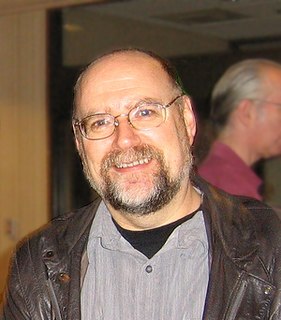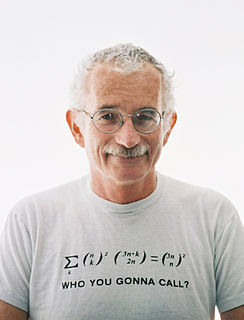Top 625 Finite Quotes & Sayings - Page 11
Explore popular Finite quotes.
Last updated on April 21, 2025.
Being happy is not all about love! Love is not everything. Work, friends, and achieving things... your finite thing in life can't be getting married and having children. Like, creating a life for myself that's my own, and my own road? That was always the most important thing for me. Right now, I have a kid and stuff, and it's fantastic to be a mother, but it's not the final thing. You want to stay an individual. You need to stay an individual for your kid, as an example of what a human being should be! You want to stay true to yourself and not become a half a person. That is so, so important.
I was influenced by the Beats because I actually just began to commit adolescence around 1955, when "Howl" and Rebel Without a Cause and a lot of other new things were popping up. (Again I'm trying to give you a finite version of this career.) And then I came under the sway of Wallace Stevens when I was in college and graduate school, and basically set as a life goal the ambition of writing third-rate Wallace Stevens. I thought I would be completely content if I was recognized at some later point in my life as a third-rate Wallace Stevens.
Sometimes differences arise partly from incomplete information. We are finite. And we should admit that there are cases of uncertainty. But often the differences become exacerbated because of sinful inclinations underneath the surface, which incline us to prefer our own ideas and not to submit to what is less comfortable. We must be cautious about accusing anyone else of sin. We don't know people's hearts. But we must also avoid being naïve about the subtlety of sin and the corrupting effects of sin on the mind - our own minds, not only the mind of the other fellow.
Human beings, because we're so clever, have removed every single one of those population limiting factors... So nothing controls our increase in numbers except our own wish. Since I first started making television programs, the population of the world has increased three times. That's an extraordinary notion. Can it increase four times? Can it increase five times? The Earth is a finite size. So a point will eventually come when we run out of food, when we run out of space and when we will have destroyed most of the natural world. So ought we to do something about it before that happens?
Unfortunately, in rich-world health, innovation is both your friend and your enemy. Innovation is inventing organ replacement, joint replacement. We're inventing ways of doing new things that cost $300,000 and take people in their 70s and, on average, give them an extra, say, two or three years of life. And then you have to say, given finite resources, should we fire two or three teachers to do this operation?
When I speak of the aspiration towards the beautiful, of the ideal as the ultimate aim of art, which grows from a yearning for that ideal, I am not for a moment suggesting that art should shun the 'dirt' of the world. On the contrary! the artistic image is always a metonym, where one thing is substituted for another, the smaller for the greater. To tell of what is living, the artist uses something dead; to speak of the infinite, he shows the finite. Substitution... the infinite cannot be made into matter, but it is possible to create an illusion of the infinite: the image.
It is not given to man to know the whole Truth. His duty lies in living up to the truth as he sees it, and in doing so, to resort to the purest means, i.e., to non-violence. God alone knows absolute truth. Therefore, I have often said, Truth is God. It follows that man, a finite being, cannot know absolute truth. Nobody in this world possesses absolute truth. This is God's attribute alone. Relative truth is all we know. Therefore, we can only follow the truth as we see it. Such pursuit of truth cannot lead anyone astray.
Technologically, modern man does everything he can do-he functions on this single boundary principle. Modern man, seeing himself as autonomous, with no personal-infinite God who has spoken, has no adequate universal to supply an adequate second boundary condition; and man being fallen is not only finite, but sinful. Thus man's pragmatically made choices have no reference point beyond human egotism. It is dog eat dog, man eat man, man eat nature.
Curiosity and irreverence go together. Curiosity cannot exist without the other. Curiosity asks, "Is this true?" "Just because this has always been the way, is the best or right way of life, the best or right religion, political or economic value, morality?" To the questioner, nothing is sacred. He detests dogma, defies any finite definition of morality, rebels against any repression of a free, open search of ideas no matter where they may lead. He is challenging, insulting, agitating, discrediting. He stirs unrest.
Combinatorics is an honest subject. No adèles, no sigma-algebras. You count balls in a box, and you either have the right number or you haven't. You get the feeling that the result you have discovered is forever, because it's concrete. Other branches of mathematics are not so clear-cut. Functional analysis of infinite-dimensional spaces is never fully convincing; you don't get a feeling of having done an honest day's work. Don't get the wrong idea - combinatorics is not just putting balls into boxes. Counting finite sets can be a highbrow undertaking, with sophisticated techniques.
...boredom speaks the language of time, and it is to teach you the most valuable lesson in your life--...the lesson of your utter insignificance. It is valuable to you, as well as to those you are to rub shoulders with. 'You are finite,' time tells you in a voice of boredom, 'and whatever you do is, from my point of view, futile.' As music to your ears, this, of course, may not count; yet the sense of futility, of limited significance even of your best, most ardent actions is better than the illusion of their consequence and the attendant self-satisfaction.
In love at one of its poles you find the personal, and at the other the impersonal. At one you have the positive assertion — Here I am; at the other the equally strong denial — I am not. Without this ego what is love? And again, with only this ego how can love be possible?
Bondage and liberation are not antagonistic in love. For love is most free and at the same time most bound. If God were absolutely free there would be no creation. The infinite being has assumed unto himself the mystery of finitude. And in him who is love the finite and the infinite are made one.
In this external world, which is full of finite things, it is impossible to see and find the Infinite. The Infinite must be sought in that alone which is infinite, and the only thing infinite about us is that which is within us, our own soul. Neither the body, nor the mind, nor even our thoughts, nor the world we see around us, is infinite.
What I believe is so magnificent, so glorious, that it is beyond finite comprehension. To believe that the universe was created by a purposeful, benign Creator is one thing. To believe that this Creator took on human vesture, accepted death and mortality, was tempted, betrayed, broken, and all for love of us, defies reason. It is so wild that it terrifies some Christians who try to dogmatize their fear by lashing out at other Christians, because tidy Christianity with all answers given is easier than one which reaches out to the wild wonder of God's love, a love we don't even have to earn.
There's always going to be one more thing. Because that's what infinite feels like. And the difference between love and everything else is that it's infinite, it's built out of something infinite, or it feels like it is, anyway, which is the same thing to us. You think a million billion more things will come your way, a million billion more versions of everything. But no, everything that actually causes that infinite feeling, the circumstances of every infinite feeling, is so, so finite.
I think each village was meant to feel pity for its own sick and poor whom it can help and I doubt if it is the duty of any private person to fix his mind on ills which he cannot help. This may even become an escape from the works of charity we really can do to those we know. God may call any one of us to respond to some far away problem or support those who have been so called. But we are finite and he will not call us everywhere or to support every worthy cause. And real needs are not far from us.
Our population and our use of the finite resources of planet Earth are growing exponentially, along with our technical ability to change the environment for good or ill. But our genetic code still carries the selfish and aggressive instincts that were of survival advantage in the past. It will be difficult enough to avoid disaster in the next hundred years, let alone the next thousand or million. Our only chance of long term survival, is not to remain inward looking on planet Earth, but to spread out into space.
This morning, prompted by increasing concerns about terrorism, oil prices reached a record high as the cost of a barrel of crude is a whopping $44.34. Wow, it seems shocking that a product of finite supply gets more expensive the more we use it. Now the terror alert means higher oil prices, which oddly enough means higher profits for oil companies giving them more money to give to politicians whose policies may favor the oil companies such as raising the terror alert level. As Simba once told us: "It's the circle of life."
From this new point of view, the universe I had inhabited became an object I could perceive in its entirety. It was a hypersphere embedded in a cloud of alternative states - the sum of all possible quantum trajectories from the big bang to the decay of matter. "Reality" - history as we had known or inferred it - was only the most likely of these possible trajectories. There were countless others, real in a different sense: a vast but finite set of paths not taken, a ghostly forest of quantum alternatives, the shores of an unknown sea.
There are three reasons, . . . apart from scientific considerations, mankind needs to travel in space. The first . . . is garbage disposal; we need to transfer industrial processes into space so that the earth may remain a green and pleasant place for our grandchildren to live in. The second . . . to escape material impoverishment: the resources of this planet are finite, and we shall not forego forever the abundance of solar energy and minerals and living space that are spread out all around us. The third . . . our spiritual need for an open frontier.
To make our position clearer, we may formulate it in another way. Let us call a proposition which records an actual or possible observation an experiential proposition. Then we may say that it is the mark of a genuine factual proposition, not that it should be equivalent to an experiential proposition, or any finite number of experiential propositions, but simply that some experiential propositions can be deduced from it in conjunction with certain other premises without being deducible from those other premises alone.
Our supplies of natural resources are not finite in any economic sense. Nor does past experience give reason to expect natural resources to become more scarce. Rather, if history is any guide, natural resources will progressively become less costly, hence less scarce, and will constitute a smaller proportion of our expenses in future years.
I've always had some sort of affinity for the ends of things. It depends on the song, I try to explore it in different ways. Sometimes when I think about death I'm thinking of it as a physical character that can teach you things and sometimes I'm thinking of it in a finite sense and other times I'm just asking questions that I can't answer. I don't really like to state my personal belief, because I change my mind too often, but I imagine something peaceful. Whether it's a rest or another world or some kind of eternity, it doesn't seem like a scary thing.
Does there exist an Infinity outside ourselves? Is that infinity One, immanent and permanent, necessarily having substance, since He is infinite and if He lacked matter He would be limited, necessarily possessing intelligence since He is infinite and, lacking intelligence, He would be in that sense finite. Does this Infinity inspire in us the idea of essense, while to ourselves we can only attribute the idea of existence? In order words, is He not the whole of which we are but the part?
You can keep counting forever. The answer is infinity. But, quite frankly, I don't think I ever liked it. I always found something repulsive about it. I prefer finite mathematics much more than infinite mathematics. I think that it is much more natural, much more appealing and the theory is much more beautiful. It is very concrete. It is something that you can touch and something you can feel and something to relate to. Infinity mathematics, to me, is something that is meaningless, because it is abstract nonsense.
























